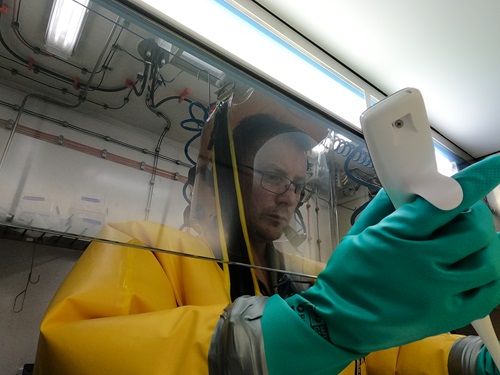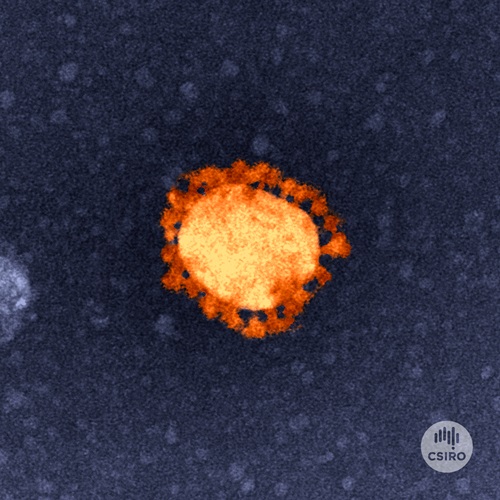A 'warm' COVID-19 vaccine suitable for remote and resource-limited locations lacking access to cold storage supply chains is one step closer following an international collaboration between scientists from India and Australia.
CSIRO, Australia's national science agency, played an important role in evaluating heat-tolerant COVID-19 vaccine formulations developed by the Indian Institute of Science (IISc) and biotech start-up Mynvax – against all current SARS-CoV-2 variants of concern.
Published today in the peer-reviewed ACS Infectious Diseases journal, researchers showed the vaccine formulations triggered a strong immune response in mice, protected hamsters from the virus, and remained stable at 37°C up to a month and at 100°C for up to 90 minutes.
Most vaccines require refrigeration to remain effective, like Oxford-AstraZeneca which must be kept between 2-8°C and Pfizer which requires specialised cold storage at -70°C.
CSIRO scientists at the Australian Centre for Disease Preparedness in Geelong contributed to the study by assessing vaccinated mice sera (blood samples) for efficacy against key coronavirus variants, including the Delta variant currently spreading globally including in Sydney.
Dr. S.S. Vasan, CSIRO's COVID-19 project leader and co-author, said the Mynvax-vaccinated mice sera show a strong response to all variants of the live virus.
"Our data shows that all formulations of Mynvax tested result in antibodies capable of consistent and effective neutralisation of the Alpha, Beta, Gamma and Delta SARS-CoV-2 variants of concern," Dr Vasan said.
CSIRO's evaluation of the different Mynvax formulations will support selection of the most suitable candidate for planned human clinical trials in India later this year.
CSIRO's Health and Biosecurity Director, Dr Rob Grenfell, said the pandemic has demonstrated the need for global scientific collaboration to address the urgent demand for multiple cost-effective COVID-19 vaccines and treatments.
"CSIRO has a long history of developing and testing vaccines for humans and animals," Dr Grenfell said.
"Since the start of the pandemic, CSIRO has played a crucial role in fighting COVID-19 by conducting preclinical evaluation of two COVID-19 vaccines including Oxford-AstraZeneca, tracking emerging variants of concern, and monitoring wastewater to detect hotspots in the community.
"A thermostable or 'warm vaccine' is critical for remote or resource-limited locations with extremely hot climates which lack reliable cold storage supply chains, including regional communities in Australia's outback and the Indo-Pacific region."
The peer-reviewed paper, Immunogenicity and protective efficacy of a highly thermotolerant, trimeric SARS-CoV-2 receptor binding domain derivative, was published by ACS Infectious Diseases on 15 July 2021.
The CSIRO study was funded by a grant from Australia's Federal Department of Finance.
For more information on CSIRO's COVID-19 research, visit: www.csiro.au/covid-19
Background
- A pre-print of the article is available here: https://www.biorxiv.org/content/10.1101/2021.01.13.426626v3
- Established in 1916, the Commonwealth Scientific and Industrial Research Organisation (CSIRO) is Australia's national science agency. It has conducted critical preclinical studies for Oxford-AstraZeneca's viral vectored vaccine (known as Covishield in India), Inovio Pharmaceuticals' DNA vaccine, and IISc-Mynvax's protein subunit vaccine against COVID-19.
- Established in 1909, the Indian Institute of Science (IISc), Bangalore, is India's premier institute for advanced research and education in all branches of science and engineering, and is the world's top ranked university in the citations per faculty metric of the Quacquarelli Symonds (QS). IISc and its spin-out Mynvax Private Limited have been developing their COVID-19 vaccine with funding from the Gates Foundation and Government of India. Mynvax is also developing improved subunit vaccines for influenza. More: www.iisc.ac.in
Images









